Okay, if that headline leaves you scratching your head you are probably not alone. After all, doing nothing hardly seems like a way to get anything done, however, it is my aim to convince you that at times, doing nothing is the most appropriate next action.
As you know if you’ve been reading GTDtimes with any regularity, I’m fairly new to practicing GTD and I make no claims of being an authority on the subject. In fact, it’s a great privilege to be able to learn from so many knowledgeable and experienced GTD’ers as a direct benefit of editing this site. Nevertheless, I believe that I can make a strong case for my statement above because my experience in another arena has proven to me that sometimes it is the choice to do nothing that leads to better results in everything down the road.
Back when I used to race bicycles for a living I had a problem finding people who wanted to train with me. It wasn’t that I had no friends. The problem, it seemed was that I rode too hard on my hard days and too easy on my easy days. Most less experienced riders do exactly the opposite. Their hard days are not intense enough and their easy days are too intense to deliver optimum recovery. After more than two decades in the saddle, I had learned that having the discipline to take a day completely off and just do as little as possible was a key component in my training program.
Without taking the occasional day off your body never gets that chance to fully recover and recharge. Your energy level never reaches maximum, you never get totally re-hydrated and in the long run, the twenty, thirty, forty or fifty miles that you put in while I was hanging out watching TV weren’t the miles that won you the race, they were the nails in your coffin as I rode away on fresher legs over the final climb.
Similarly, I believe that we all need a mental break from time to time so that we have the ability to focus completely, to make good decisions about what our most appropriate next action needs to be and so that we are capable of putting forth our best effort when and where it can do the most good.
In the geek culture in particular, there’s a sort of masochistic pride we seem to take in logging the most absurd hours, taking the fewest days off and forgoing meals and coffee breaks to prove we’re working harder than the next guy. Frankly, if we were bike racers we’d be peeing off the bike on training rides instead of stopping like civilized people. (Yes, I know it sounds impossible, but it is actually something that a professional cyclist can do without wearing it – seriously) .
Peeing aside, the truth is that this sort of behavior leads to all sorts of problems. As a double-divorcee myself I can attest to this being counter productive to relationships, but there are other costs that are equally steep. Stupid mistakes like accidentally hitting the “send” button or misaddressing a scathing email, falling asleep in a crucial meeting or simply doing less than stellar work are all quite possible when you don’t factor some mental recovery into your productivity strategy.
Like an athlete who doesn’t realize that the body improves while recovering from the stress of training, not the training itself, an executive who works non-stop is cheating herself out of the mental recovery that can enable creative thinking, problem solving, or even simply relaxing enough to get a good night’s sleep.
People used to laugh at my training schedule when they’d see a day that said: Mileage Zero, Couch 9 hours – they figured it must be a joke until they saw me with the remote control a stack of videos and a big bowl of microwave popcorn – yet it made perfect sense to me to schedule my recovery with the same discipline with which I scheduled my other training.
The thing is I bet that not a single reader of this site has doing nothing as a next action anywhere on any list or scheduled on any calendar. Of course doing nothing is a little bit hard to categorize as a next action. Perhaps we should also add occasional inaction to our lists. Who knows, you might just discover the same thing that I did during my racing years: that sometimes a little bit of time spent doing nothing leads to accomplishing something much bigger down the road…

No kidding. Once you figure out that “nothing to do” is the most creative state from which to operate, figuring out how to achieve and maintain that would be the most strategic investment. If that’s your “process improvement” priority, I’m on your team. Just let me know how you do that.
David Allen
David, I’ve read your comment three times.
The first read – ‘ ok, being instead of doing’.
The second. ‘ah, acting from being’ My head/rider saying, hmmm, makes sense as an action that more aware of reality rather than story is more effective.
On the third read, then, ah ha! The total freedom to … be, to act, to choose, to decide, to create, that comes when there is literally nothing To do. When the imperative is passed.
Flow over force.
Yes, this is an amazing place for getting things done well.
Joanne